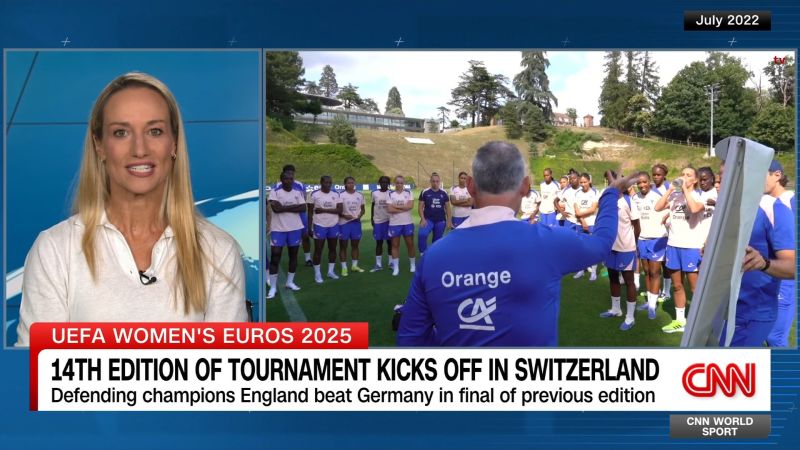The Women’s European Championships are set to commence on Wednesday, with 16 teams embarking on a journey that could see them lifting the coveted trophy on July 27th. This year’s tournament promises to be a showcase of talent and determination, as teams from across Europe compete on one of the sport’s biggest stages.
Former New Zealand captain Rebecca Smith shared her insights on the tournament with CNN’s Andy Scholes, highlighting the excitement and anticipation surrounding the event. “It’s a clean slate for everyone,” Smith remarked, emphasizing the unpredictability and competitive nature of the championship.
The Road to the Championships
The Women’s European Championships have grown significantly since their inception. The tournament, which began in 1984 with only four teams, has expanded to include 16 teams, reflecting the growing popularity and investment in women’s football across the continent. This year’s event will be hosted in multiple cities, providing a vibrant backdrop for the matches.
As the tournament kicks off, teams will be vying not only for the title but also for a chance to showcase their skills on an international platform. The competition is expected to be fierce, with traditional powerhouses like Germany, England, and France facing off against emerging teams eager to make their mark.
Key Players and Teams to Watch
Among the teams, Germany stands out with a rich history of success in the European Championships, having won the title eight times. However, the landscape of women’s football is changing, with other nations closing the gap. England, buoyed by a strong domestic league and recent international success, enters the tournament as a formidable contender.
France, known for their technical prowess and flair, will also be a team to watch, especially with players like Marie-Antoinette Katoto and Wendie Renard leading the charge. Meanwhile, Spain, with their possession-based style, could pose a significant threat to any opponent.
Emerging Stars
This tournament will also be a stage for emerging talents to shine. Young players like Lena Oberdorf of Germany and Lauren Hemp of England are expected to make significant impacts, potentially shaping the future of women’s football.
Impact and Growth of Women’s Football
The Women’s European Championships are not just about the competition; they represent the broader growth and development of women’s football. Over the past decade, there has been a noticeable increase in investment, viewership, and media coverage, contributing to a more professional and competitive environment.
According to UEFA, the governing body for European football, the previous edition of the tournament in 2017 attracted a record-breaking audience, with over 178 million viewers tuning in worldwide. This surge in interest has helped to elevate the profile of women’s football, encouraging more young girls to take up the sport.
“The growth of women’s football is undeniable. It’s not just about the game on the pitch; it’s about inspiring the next generation,” said Rebecca Smith.
Looking Forward
As the Women’s European Championships unfold, the tournament will undoubtedly provide thrilling moments and memorable matches. The event is not only a celebration of football but also a testament to the progress and potential of women’s sports.
With the final set for July 27th, fans and players alike will be eagerly watching to see which team will emerge victorious. Regardless of the outcome, the tournament is poised to leave a lasting impact on the world of women’s football, inspiring future generations and continuing the momentum of growth and equality in sports.
The stage is set, the teams are ready, and the world is watching. Let the games begin.
